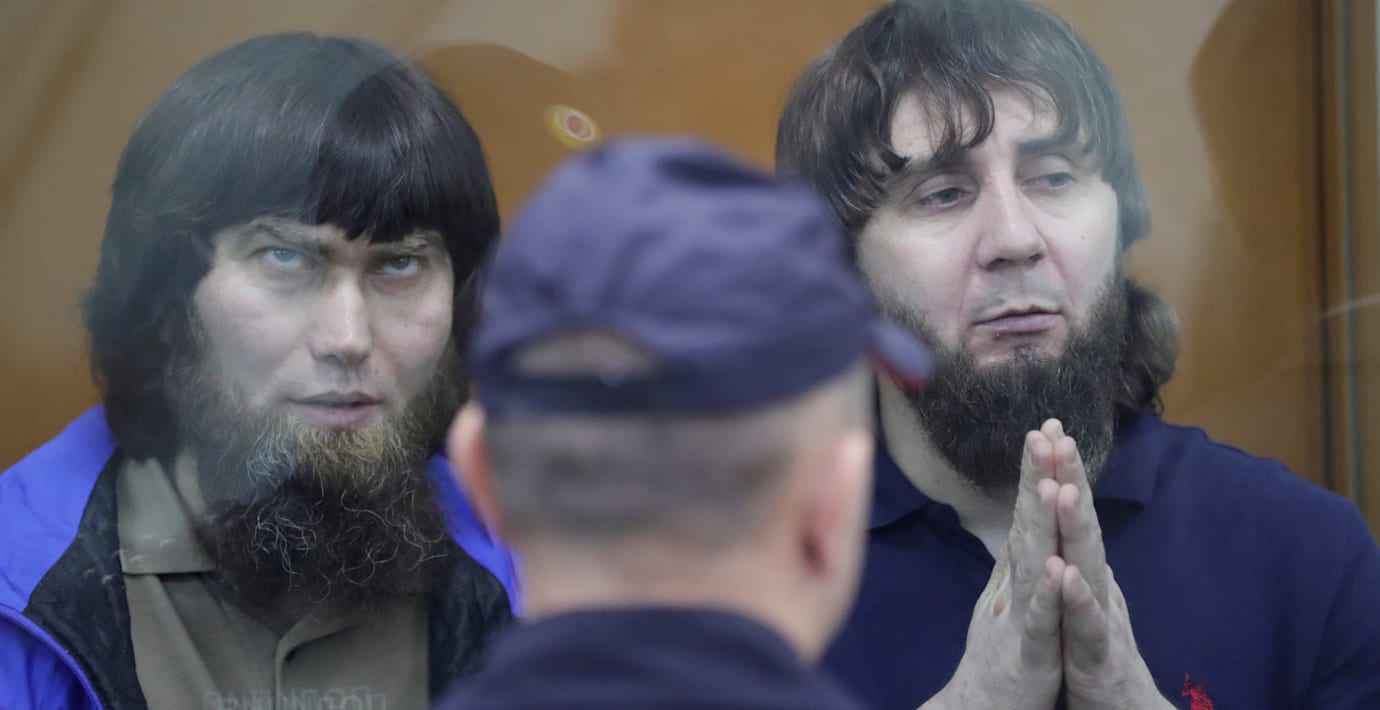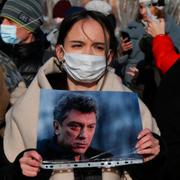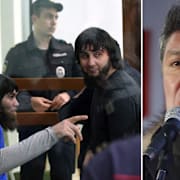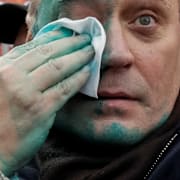
Nemtsovs mördare döms till långa fängelsestraff
Zaur Dadajev, som för två veckor sedan dömdes för mordet på den ryske oppositionspolitikern Boris Nemtsov, får 20 års fängelse. Det meddelar en rysk domstol.
En jury meddelade i juni att Dadajev och fyra andra personer ansågs skyldiga till mordet. De ska ha tagit emot en belöning på 250 000 dollar för att mörda Nemtsov men det är fortfarande inte klarlagt vem som beordrade mordet. De övriga fyra döms till fängelsestraff på mellan 11 och 19 år.
Den 55-årige oppositionspolitikern Nemtsov sköts ihjäl i närheten av Kreml i Moskva i februari 2015.
bakgrund
Boris Nemtsov
Wikipedia (en)
Boris Yefimovich Nemtsov (Russian: Бори́с Ефи́мович Немцо́в; IPA: [bɐˈrʲis jɪˈfʲiməvʲɪtɕ nʲɪmˈtsof]; 9 October 1959 – 27 February 2015) was a Russian physicist, statesman and liberal politician. Nemtsov was one of the most important figures in the introduction of capitalism into the Russian post-Soviet economy. He had a successful political career in the 1990s under President Boris Yeltsin, and since 2000 had been an outspoken critic of Vladimir Putin. Nemtsov was assassinated on 27 February 2015 on a bridge near the Kremlin in Moscow, with four shots fired from the back. Nemtsov's conflict with Putin's government, based on Nemtsov's criticism of what he perceived as an increasingly authoritarian, undemocratic regime, was centered more recently on the widespread embezzlement and profiteering ahead of the Sochi Olympics, as well as on Russian political interference and military involvement in Ukraine. Since 2008, Nemtsov had been regularly publishing in-depth reports detailing the corruption under Putin, which he connected directly with the President. As part of the same political struggle, Nemtsov was an active organizer of and participant in Dissenters' Marches, Strategy-31 civil actions and rallies "For Fair Elections". In the weeks before his death, Nemtsov expressed fear that Putin would have him killed.
At the time of the assassination, Nemtsov was in Moscow helping to organize a rally against the Russian military intervention in Ukraine and the Russian financial crisis. At the same time, Nemtsov was working on a report demonstrating that Russian troops were fighting alongside pro-Russian rebels in eastern Ukraine, which the Kremlin had been denying. An open involvement would damage Putin's government not just externally, but also within Russia, where such policy has been shown by opinion polls to be highly unpopular. At the time of his death, Nemtsov held the following political positions: elected member of the regional parliament of Yaroslavl Oblast since 2013, and since 2012, co-chair of the RPR-PARNAS, which is a member of the Alliance of Liberals and Democrats, a Pan-European political party; he was also one of the leaders of the Solidarnost ("Solidarity") opposition movement.
Previously, Nemtsov was the first governor of the Nizhny Novgorod Oblast (1991–97). Later he worked in the Government of Russia as Minister of fuel and energy (1997), Vice Premier of Russia and Security Council member from 1997 to 1998. In 1998, he founded the Young Russia movement. In 1998, he co-founded the coalition group Right Cause and in 1999, he co-formed Union of Right Forces, an electoral bloc and subsequently a political party. He was elected several times as a member of the Russian parliament. Nemtsov was also a member of the Congress of People's Deputies (1990), Federation Council (1993–1997) and State Duma (1999–2003). He also served as Vice Speaker of the State Duma and the leader of parliamentary group Union of Right Forces. After a 2008 split in the Union of Right Forces, he co-founded Solidarnost. In 2010, he co-formed the coalition "For Russia without Lawlessness and Corruption", which was refused registration as a party. Beginning in 2012, Nemtsov was co-chair of the Republican Party of Russia – People's Freedom Party (RPR-PARNAS), a registered political party.
After Nemtsov's murder, Serge Schmemann of the New York Times paid tribute to him in an article headlined "The Brilliant Boris Nemtsov: A Reformer Who Never Backed Down." Schmemann wrote: "Tall, handsome, witty and irreverent, Mr. Nemtsov was one of the brilliant young men who burst onto the Russian stage at that exciting moment when Communist rule collapsed and a new era seemed imminent." Julia Ioffe of the New York Times described Nemtsov after his death as a "deeply intelligent, witty, kind and ubiquitous" man who "seemed to genuinely be everyone’s friend". She added that "he was a powerful, vigorous critic of Vladimir Putin, assailing him in every possible medium, constantly publishing reports on topics like the president’s lavish lifestyle and the corruption behind the Sochi Olympics."
Omni är politiskt obundna och oberoende. Vi strävar efter att ge fler perspektiv på nyheterna. Har du frågor eller synpunkter kring vår rapportering? Kontakta redaktionen


